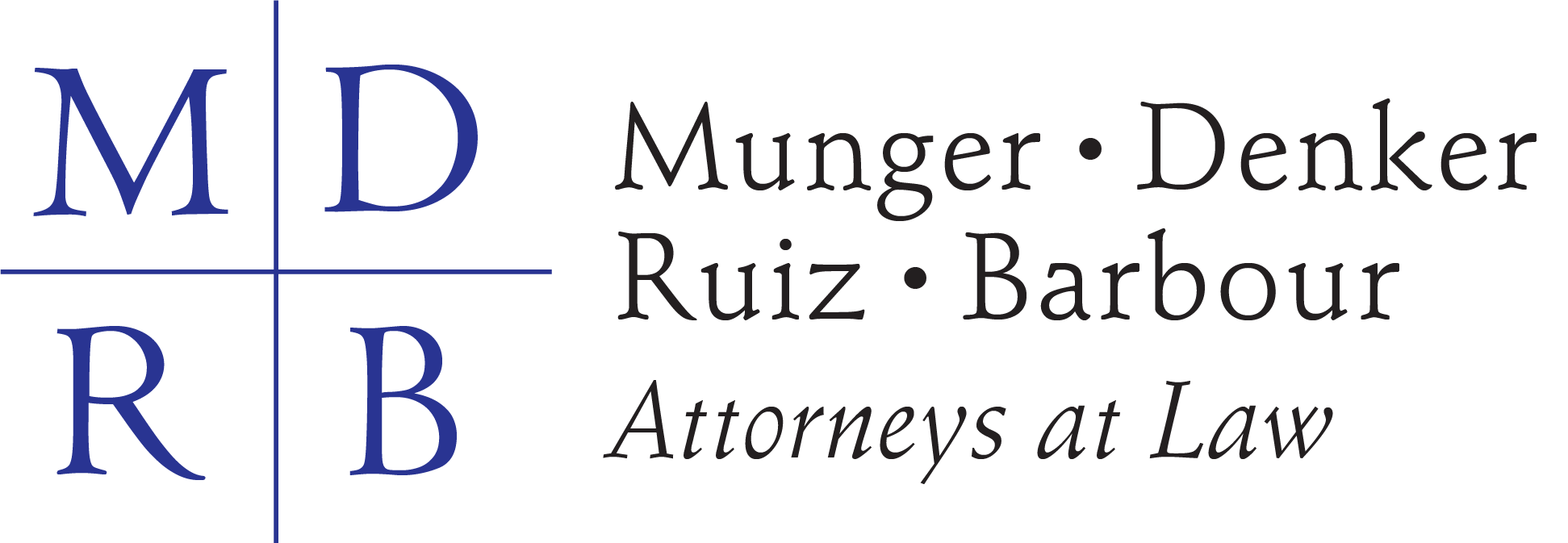
Anatomy of a Civil Lawsuit in Arizona
When disputes arise and amicable resolutions prove elusive, civil litigation becomes an avenue for seeking justice and protecting your rights. In Arizona, the process of litigation is governed by a set of laws and procedures designed to ensure fair and efficient resolution of legal conflicts.
Please click this link if you wish to learn more about litigation and how Munger • Denker • Ruiz • Barbour‘s attorneys can help you.

Understanding the Arizona Court System
The Arizona court system is divided into several levels, each with its own jurisdiction and purpose. At the trial-court level, each county has superior courts, which are authorized to hear essentially any case. These courts handle a wide range of civil cases, as well as cases involving criminal and family law matters. Smaller cases, typically those involving disputes of limited monetary value, are handled by justice courts or municipal courts.
Appellate courts in Arizona include the Court of Appeals and the Arizona Supreme Court. The Court of Appeals reviews decisions made by the trial courts, while the Supreme Court serves as the highest judicial authority in the state, hearing appeals from the Court of Appeals and addressing matters of statewide importance.
Commencing a Lawsuit
To initiate a lawsuit in Arizona, the plaintiff, or the party bringing the legal action, must file a complaint in the appropriate court. The complaint outlines the basis for the lawsuit, identifying the parties involved and the relief sought. The defendant, the party being sued, is then served with the complaint and has an opportunity to respond.
Discovery Process
Once a lawsuit is underway, the discovery process allows each party to obtain relevant information and evidence from the opposing side. This includes written interrogatories (questions), requests for document production, and depositions (oral testimonies under oath). Discovery helps both parties gather evidence and assess the strengths and weaknesses of their case, and facilitates a more informed negotiation or trial process.
Alternative Dispute Resolution
Arizona encourages the use of alternative dispute resolution (ADR) to resolve disputes outside of the courtroom. Mediation and arbitration are common forms of ADR. Mediation involves a neutral third party assisting the parties in reaching a mutually agreeable resolution, while arbitration entails the submission of the dispute to an arbitrator, who will render a binding decision.
Trial and Judgment
If a case proceeds to trial, both parties present their arguments, evidence, and witnesses to the judge or to the jury. In civil litigation, the judge or the jury will render a verdict based on the evidence.
Post-Trial Options
Following a trial, a party may pursue an appeal if it disagrees with the decision in the trial court. An appeal asks the Court of Appeals or the Supreme Court to review the trial court’s decision. The appellate court then examines whether any errors were made during the trial process that impacted the outcome.
Conclusion
Civil litigation in Arizona follows a well-established framework designed to ensure fairness and justice for all parties involved. From the initiation of a lawsuit through the trial and post-trial options, understanding the processes and procedures is necessary to navigate the legal system successfully. Consulting with an attorney experienced in civil litigation in Arizona is crucial.
The attorneys at Munger • Denker • Ruiz • Barbour stay up-to-date on all aspects of litigation in Arizona and provide services to all Arizonans. Our attorneys know that your time and money are valuable, and will work to resolve your matter efficiently and effectively, both in and out of court.
Latest Posts
Quiet Title
Normally, it is simple to determine who is the lawful owner of real property: Whoever is listed on the last deed recorded with the county recorder’s...
Quiet Title
Safeguarding Your Interests in Arizona Probate Court
What Is Probate Court? A probate court is one that has authority or jurisdiction over all cases involving wills, trusts, estates, and...



